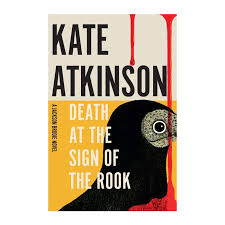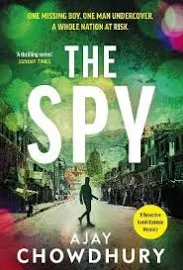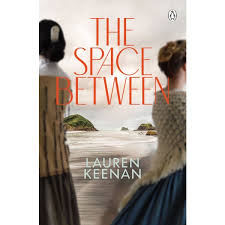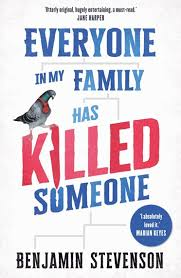Juice,
by Tim Winton.
An old man and a little girl travel east in a land turned
to ash and desert; eventually they stop
for shelter at an abandoned mine works – except that it isn’t abandoned: a bowman is in residence and fancies the look
of their transport, and the batteries that power it. He takes them prisoner and, to play for time,
the old man tells him the story of how they arrived at this last Godforsaken
place in the southeast of what used to be Australia – before human greed and
power-hungry tinpot dictators wrecked the planet by fossil-fuel extraction –
Juice.
Tim Winton has written a frightening, dystopian and
brilliant story in spare, beautiful language of the consequences of climate
change, global warming, and how the remainder of the population survived ‘The
Terror’ – when nature got payback for all the overuse of precious
resources; now survivors use all their
ingenuity to keep batteries going so that they can have light and transport,
and formerly big cities are now walled to repel lawless bandits. The old man paints a stark picture of his
childhood in a hamlet near the tropic of Capricorn, raised by his strict but
loving mother as a plantgrower: money no
longer has any power; food of all kinds
is the currency: food can be traded for other
commodities – building materials, fowls for eggs and spare parts for the
vehicles. It is a very simple, lonely
life, but when he is seventeen, he is recruited into a secret organisation
called the Service, where all members are Operators, and trained in many and
various ways to ‘acquit’ the world’s polluters – ‘acquit’ being a euphemism for
assassinate: the teen doesn’t tell his
plantgrower mum that he has been recruited;
he just says that he has to go foraging for whatever he can find that is
useful, even though he sometimes sustains serious injuries, but he doesn’t want
to worry her.
Or Sun, his great love, and the daughter he has with her,
Ester (The only two named characters in the book), who eventually abandon him
when he is absent ‘foraging’. Now he is
self-appointed guardian of the mute little girl, and wants to team up with the bowman; he feels that they would survive well as a
team – unfortunately, the bowman doesn’t feel the same way; he covets the old
man’s transport: who will survive?
Tim Winton is an enormously respected Australian novelist
– this could be his magnum opus, especially as the theme he tackles affects us
all, and no-one could be more adept at describing our headlong rush to wreck
the planet than he. This is the best
book I have read this year. SEVEN STARS.

















